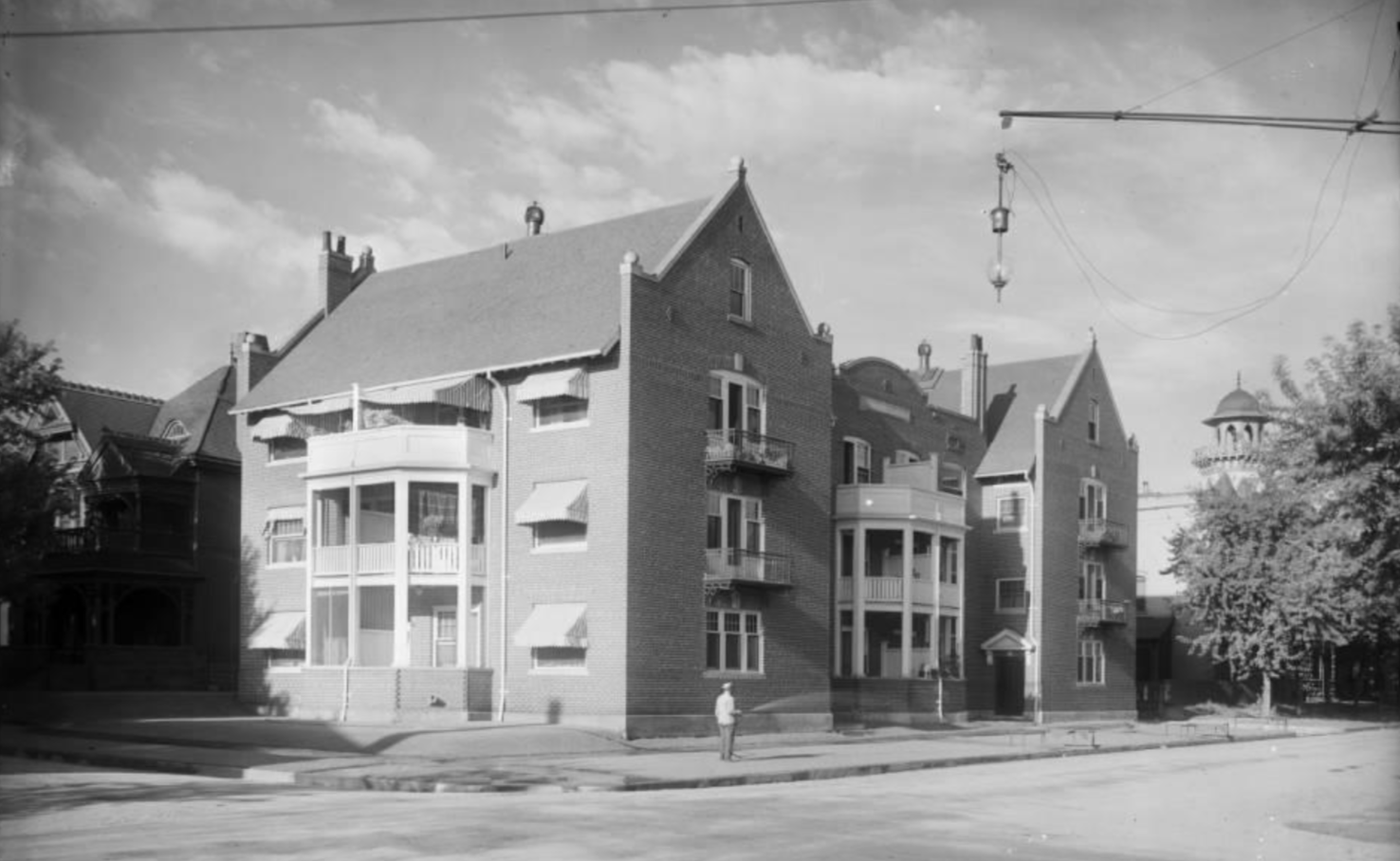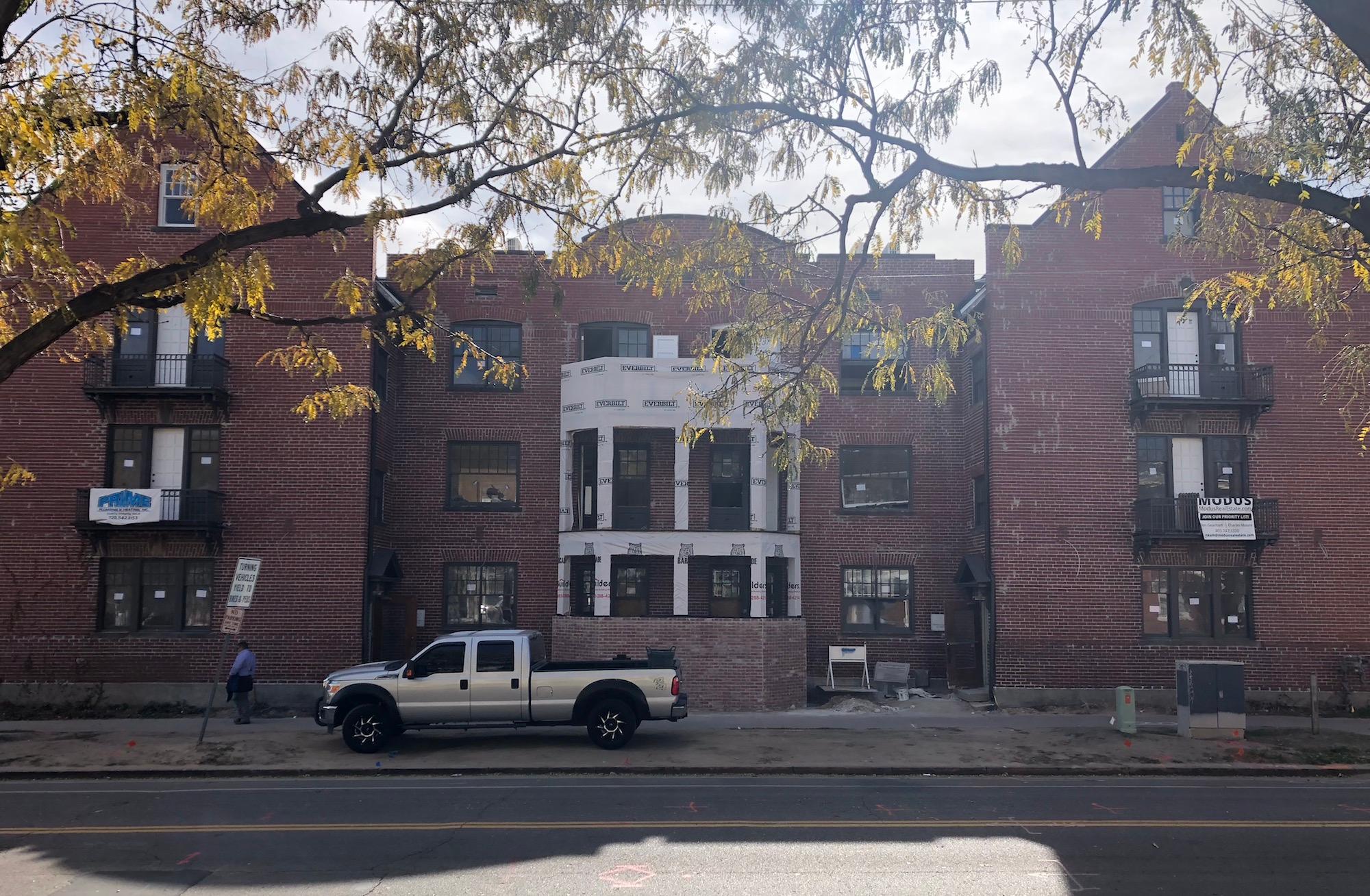Between the rooftop pools and balconies with mountain views competing for a piece of downtown Denver's skyline, it's almost hard to imagine a time when the wealthy fled the bustling district for the solace of Capitol Hill.
But that's exactly what happened in the early 1900s when downtown Denver was a dirty manufacturing hub. The middle class soon followed the lead of the wealthy, and the Essex apartment building at 16th and Washington, along with houses and apartments around East Colfax Avenue, were built to support that exodus.
"Colfax Avenue was actually lined with mansions, and it was a way for the wealthy to showcase their wealth through great construction," Kara Hahn, a senior city planner with Denver Community Planning and Development, said during a committee meeting earlier this month.
On Monday the Denver City Council advanced a bill to dub the Essex a historical landmark. A full vote is expected November 5.

The streetcar network allowed middle class Denverites to sprawl further from where the jobs were, letting them "live away from the dirt and grime of the city’s center," a city application states. William Fisher, a prominent local architect, designed the "colonial revival" style building with "mission" style subtleties.
Historic landmark designations do a few things. Most visibly, they keep the building's architectural character intact.
Landmark buildings trigger an extra layer of permitting for any exterior changes, and the regulations make them difficult to demolish, CPD spokeswoman Andrea Burns told Denverite.
Less visibly, the designation helps building owners receive tax credits from the state and federal governments, which reduces the bottom line for upkeep and renovations. Essex owner Ben Gearhart of Modus Real Estate is going after those incentives while renovating the building to restore its original balconies, he told Denverite.
"We like just preserving the fabric of our history here in Denver in general," Gearhart said. "These types of opportunities are very rare and we're always looking for opportunities to preserve historic character."
You might have known the Essex as the Denver International Hostel (2.5 stars on Yelp!) where you could grab a room for $20 a night. Its future will be decidedly different. Gearhart is planning a "boutique hospitality concept" for half of the building (11 rooms) and market-rate apartments on the other half (10 units). The average rent in the metro area is $1,465.-- a far cry from a $20 fee, but an addition to the city's housing stock.
City Councilwoman Mary Beth Susman said the restoration project is a win for city living.
"Capitol Hill is a great example of having multifamily units and single family units... so that people of different means could live in one place together," she said. "Glad to hear he's restoring it."












